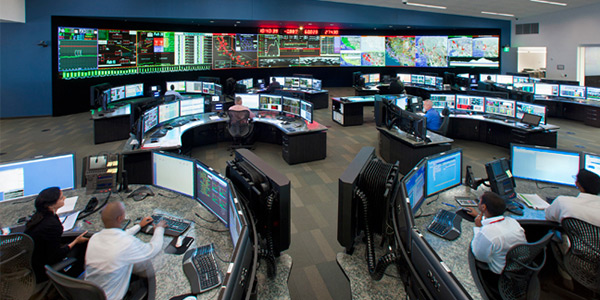By Hudson Sangree
CAISO’s Department of Market Monitoring reported significantly lower wholesale electricity prices in the ISO during the third quarter this year, driven by lower natural gas costs and fewer transmission constraints than in previous quarters.
“Market prices were very low relative to our historical Q3 prices and highly competitive,” Amelia Blanke, manager of monitoring and reporting for the ISO’s Department of Market Monitoring, told participants on a call Tuesday. “The big factors that were driving that were gas prices … higher renewables, particularly hydro, and low congestion.”
Average gas prices were down nearly 44% from the third quarter of 2018. That drove the cost of wholesale electricity down from $68/MWh to $39/MWh.
“That’s a dramatic reduction,” Blanke said.
Volatile gas prices have been the major source of price spikes and decreases this year and last.
In the first quarter this year, a huge spike in natural gas costs drove up prices by more than 40% compared with the same period a year before, the DMM said. (See Gas Spike Drove High CAISO Power Costs in Q1.)
Average hourly hydropower production rose by approximately 2,000 MW in July compared to the same month a year before, according to the market presentation.
The comparative lack of major wildfires during the summer and early fall months, the start of California’s fire season, meant transmission lines weren’t down for extended periods.
“We had relatively few transmission-related outages causing congestion as well as low fires within Q3,” Blanke said.
Congestion revenue rights losses for ratepayers also continued to fall because of settlement changes and lower congestion, Blanke said.
Ratepayers have been covering big losses in the CRR auctions since they were implemented in 2009 because of the difference between revenues and payments to CRR holders, the DMM has found. The loss to ratepayers had reached $860 million as of late last year, the department said earlier this year.
The main beneficiaries have been financial entities that purchase the CRRs, betting on profits.
Changes implemented in January significantly reduced the number and pairs of nodes at which CRRs can be purchased in the auction. They also limited net payments to CRR holders when payments exceed congestion charges collected in the day-ahead market, CAISO said.
Payments have exceeded auction revenues in every quarter this year, including by $4.1 million in Q3, the DMM reported. In comparison, CRR auction payments outpaced revenues by approximately $180 million over Q4 2017 through Q4 2018.





